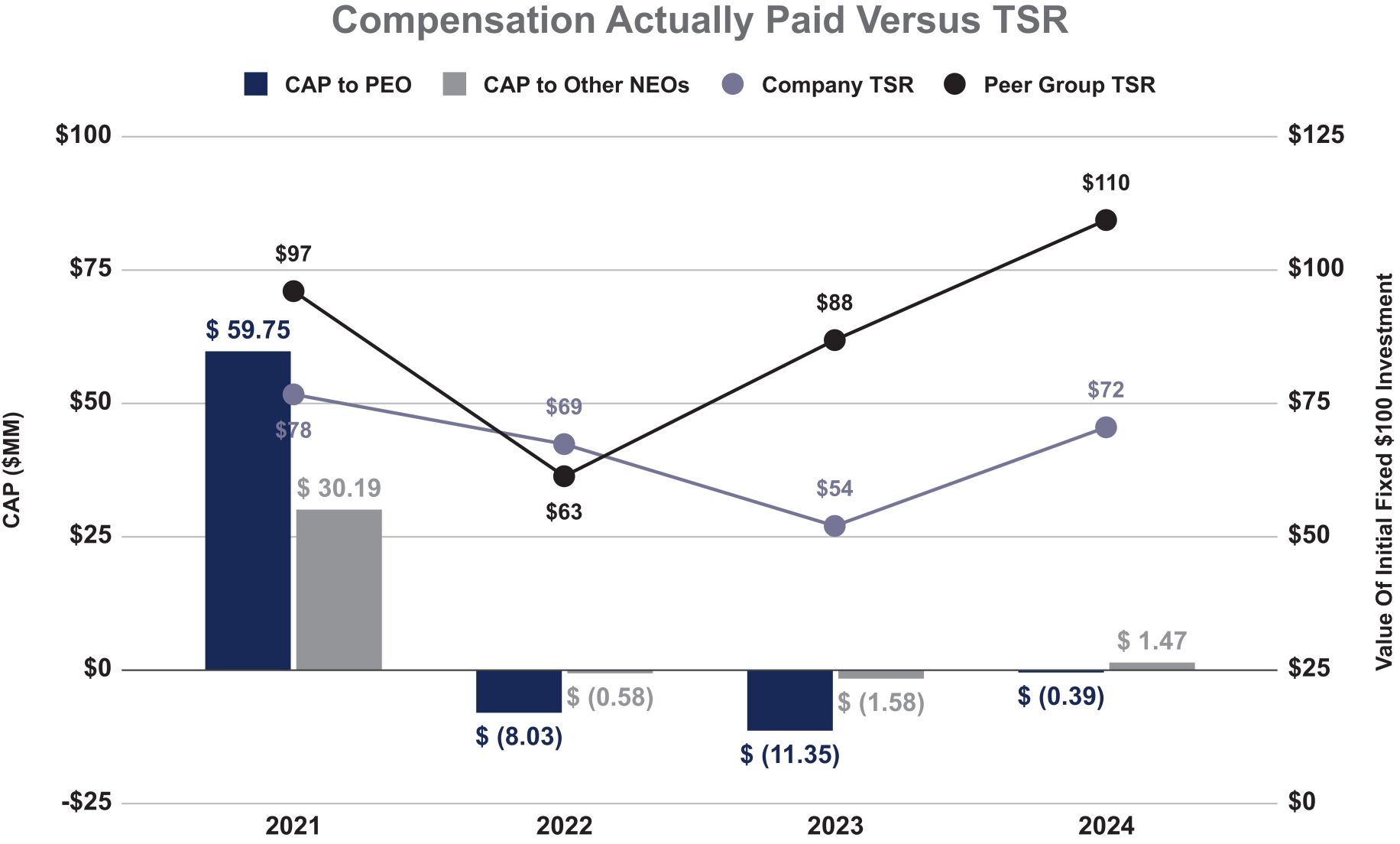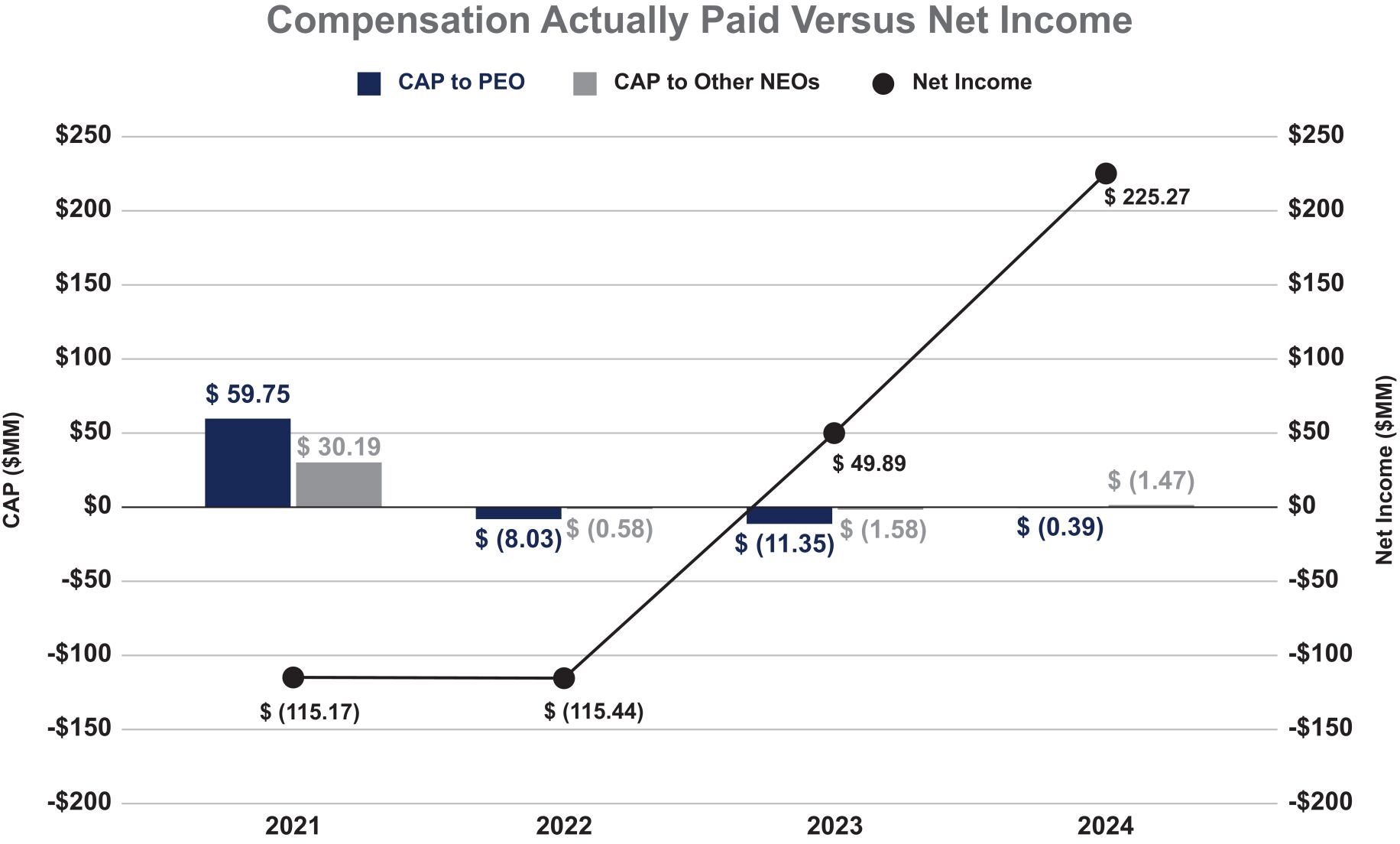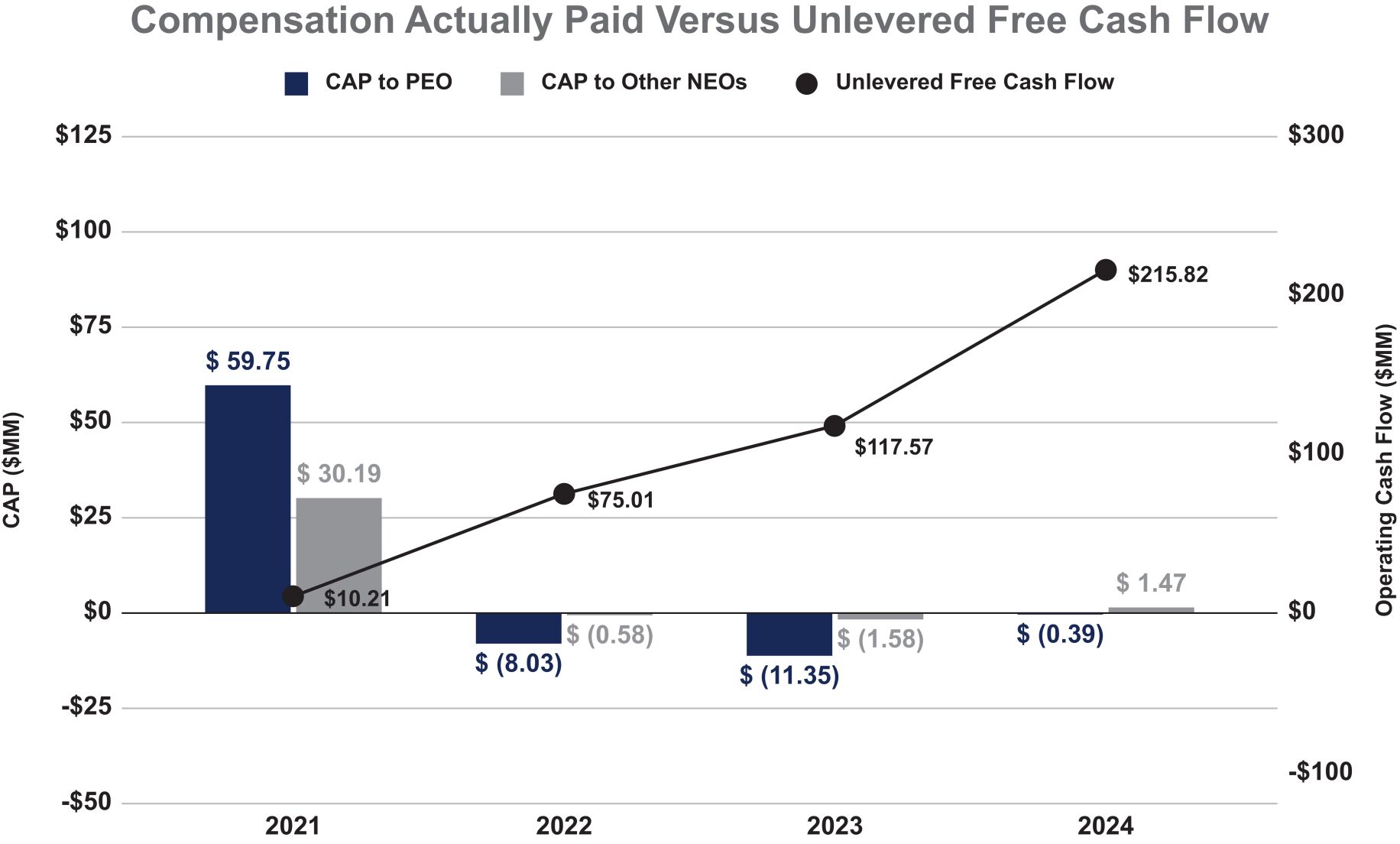| |
• |
|
In the event of termination of employment, the payment of certain amounts may be delayed, depending upon the terms of each specific award agreement and the applicability of Code Section 409A. In quantifying aggregate termination payments, we have not taken into account the timing of the payments and we have not discounted the value of payments that would be made over time, except where otherwise disclosed. |
| |
• |
|
We have assumed that all performance objectives for performance-based awards (excluding the Founder PSUs which are market-based awards tied to stock price) are achieved. |
In the event of a voluntary termination of employment, a retirement, disability or termination by the Company for “Cause,” no NEO would have been entitled to any payments, excluding any vested benefits.
In the event of a termination of employment by the Company without “Cause” or a termination of employment by the NEO for “Good Reason” prior to the first anniversary of employment, each of Ms. Haaland’s and Mr. Schlegel’s offer letters provide them with severance equal to three months of their annual base salary, which is a value at December 31, 2024 of approximately $137,500 and $131,250, respectively.
In the event of termination of employment due to death, all unvested RSUs of Mses. Seidman Becker and Haaland and Messrs. Cornick, McLaughlin and Schlegel (other than 6,458 RSUs granted to Mr. McLaughlin in May 2022) would vest immediately, and a prorated number of PSUs (excluding the Founder Awards) at target based on time served, unless the performance of the PSUs is determinable at the time of termination, of our NEOs would vest. In the event of such an occurrence on December 31, 2024 (based on a stock price of $26.64 per share), Mses. Seidman Becker and Haaland and Messrs. Cornick, McLaughlin and Schlegel would have been entitled to vesting of equity awards with a value of: $6,919,473, $5,037,366, $5,189,605, and $1,731,292, and $0, respectively.
All of the unvested RSUs held by the NEOs (other than the Founder PSUs) provide for “double-trigger” vesting. That is, in the event of a change in control, if the grantee is involuntarily terminated without cause or resigns for good reason (as defined in the award agreement), within three months before or 12 months after the change in control, then the equity awards will become fully vested. Also see the description of the terms of the Founder PSUs above, whose value upon a change in control would depend on the stock price at such time. In the event of such an occurrence on December 31, 2024 (based on a stock price of $26.64 per share), Mses. Seidman Becker and Haaland and Messrs. Cornick, McLaughlin and Schlegel would have been entitled to vesting of equity awards with a value of: $6,919,473, $5,979,534, $5,189,605, $2,681,022 and $0, respectively.
CEO Pay Ratio
We are providing the following information about the relationship of the median annual total compensation of our employees and the total compensation of Ms. Caryn Seidman
55








